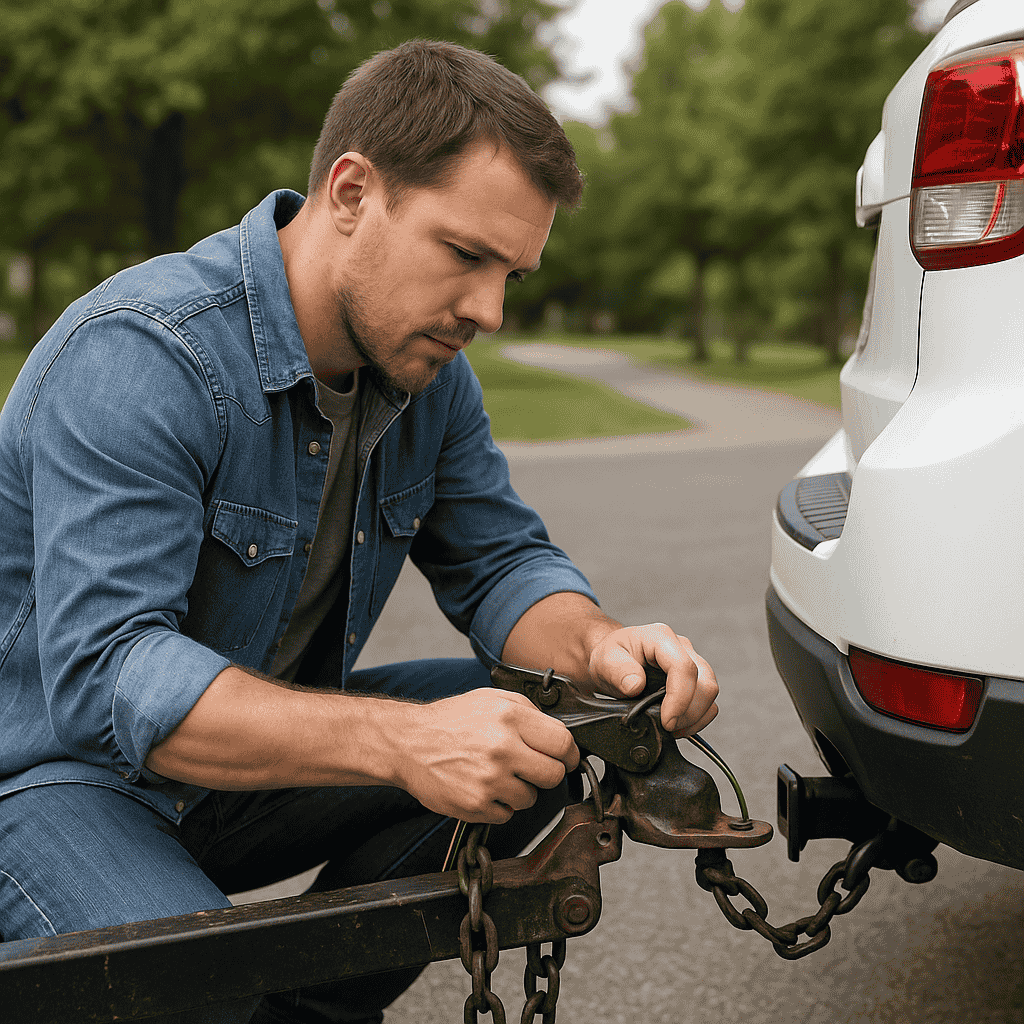Whether you’re an experienced hauler or new to towing, issues with your hauling setup can cause delays, damage, or even safety risks. From trailer sway to electrical malfunctions, these problems can often be traced back to simple oversights. This guide walks you through the most common hauling issues and how to troubleshoot them efficiently, ensuring a safer and smoother towing experience.
Common Signs of a Faulty Hauling Setup
Identifying trouble early can save you time and money. Here are typical signs that something might be wrong with your hauling configuration:
- Trailer swaying or fishtailing
- Uneven tire wear
- No brake lights or signal response
- Unusual noises or vibrations while driving
- Difficulty attaching or detaching the trailer
If you’re noticing any of these symptoms, it’s time to inspect your towing system thoroughly.
Inspecting Hitch Support and Trailer Connection
After ensuring your safety, the next step is evaluating the hitch support, which is the foundation of any safe towing configuration. A properly fitted and secure hitch ensures smooth towing and prevents disconnections or imbalance. Look for:
- Signs of wear, rust, or misalignment
- Loosened bolts or missing locking pins
- Improper hitch ball size or poorly fitted coupler
Many towing problems can be resolved simply by correcting a flawed hitch support setup or upgrading to a more suitable system. Regular inspections go a long way in maintaining stability on the road.
Electrical Problems and Lighting Failures
A very common source of towing issues lies in the trailer’s electrical system. If your brake lights or turn signals aren’t functioning:
- Check the trailer connector plug. Make sure it’s clean and firmly attached.
- Inspect the wiring for damage. Corroded or frayed wires can break the circuit.
- Test the vehicle’s fuse box. A blown fuse may be the root cause, especially if all trailer lights are out.
These types of trailer hitch help concerns are frequently overlooked but are crucial for both legal and safety reasons. Regular testing before every trip can help you catch issues early.
Addressing Trailer Sway and Weight Distribution
Trailer sway is not only scary but dangerous. In many cases, the problem lies in improper weight distribution or tire pressure issues. Here’s how to manage it:
- Load heavier items toward the front of the trailer
- Avoid overloading or unevenly distributing cargo
- Check that trailer tires are properly inflated
- Use a weight distribution hitch, if applicable
Balancing your load is essential for towing safely. If sway continues even after proper loading, your hitch type or suspension system may need professional evaluation.
When to Seek Expert Help for Towing Issues
Sometimes, troubleshooting can only go so far. If you’re still having problems, or if you’re facing repeated failures despite fixes, it’s time to seek professional advice. Don’t hesitate to reach out for customer support for towing, especially when it comes to safety-related matters.
You might have towing questions that don’t have straightforward answers in manuals or online forums. When you’re unsure about compatibility, configuration, or handling issues, expert input is often the fastest route to a solution.
For personalized guidance and professional support, visit Andersen Hitches Support. Their team offers trusted answers to a wide range of towing and trailer-related challenges.
Conclusion
Maintaining a dependable hauling setup means staying proactive about inspections and understanding the common points of failure. By checking your hitch, inspecting electrical connections, and managing trailer weight correctly, you can prevent most towing issues before they arise. And when you need help beyond DIY fixes, support from towing professionals is just a click away.
Frequently Asked Questions (FAQs)
1. Why does my trailer sway at high speeds?
Trailer sway often results from poor weight distribution or underinflated tires. Ensure heavier cargo is placed near the front and tires are inflated to the correct PSI.
2. How do I know if my hitch is the right size for my trailer?
Check your trailer’s tongue weight and gross trailer weight, and ensure your hitch is rated appropriately. Consult your vehicle’s towing capacity as well.
3. What should I do if my trailer lights stop working mid-trip?
First, safely pull over and inspect the connector plug. Look for corrosion or loose wiring. If everything appears intact, check the vehicle’s fuses.
4. Where can I get reliable answers for unique towing or trailer issues?
If you’re dealing with uncommon problems or need specific guidance related to your towing setup, it’s best to consult a trusted support resource. A helpful place to ask detailed questions is Andersen Hitches Support, where experienced professionals can provide tailored assistance based on your equipment and situation.





Be First to Comment